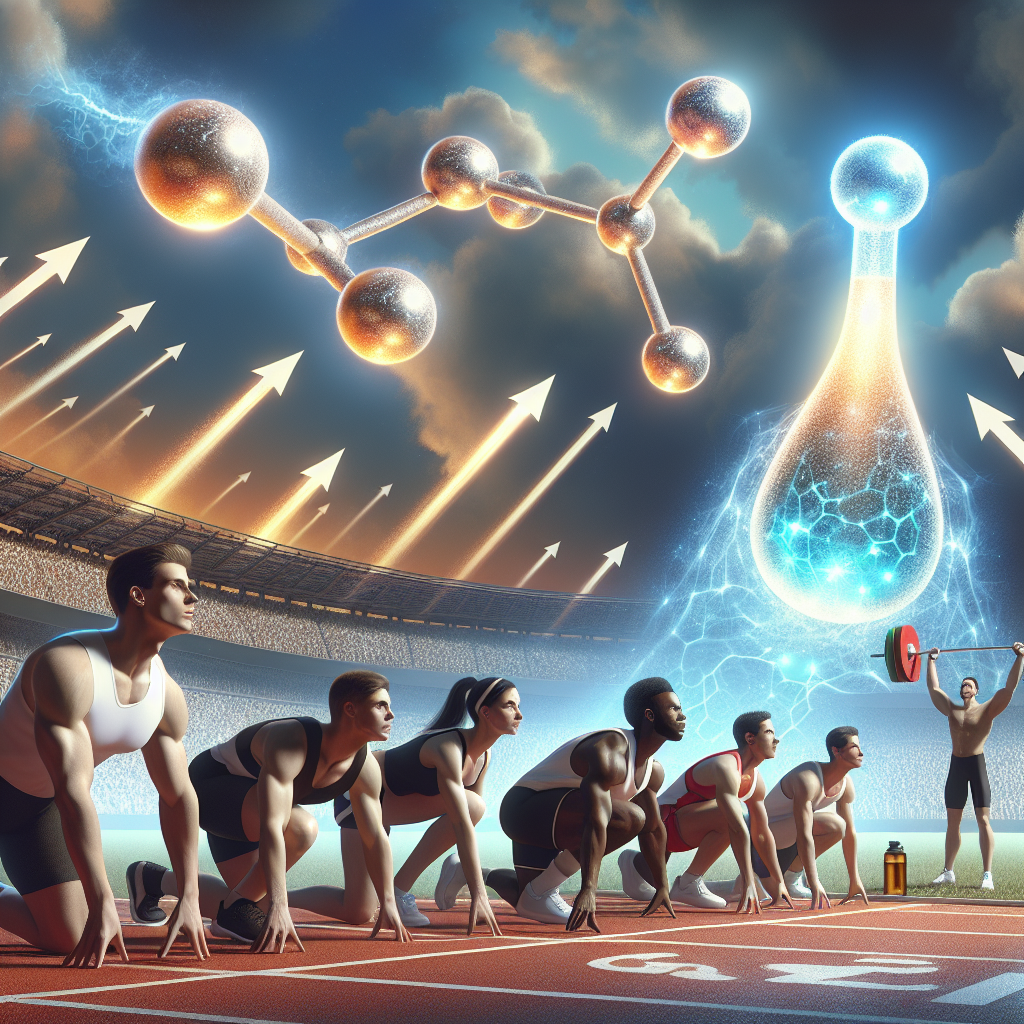-
Table of Contents
The Importance of Testosterone for Sports Performance
Testosterone is a hormone that plays a crucial role in the development and maintenance of male characteristics. It is also known to have a significant impact on sports performance, making it a popular topic in the field of sports pharmacology. In this article, we will explore the importance of testosterone for sports performance and its effects on athletes.
What is Testosterone?
Testosterone is a steroid hormone that is primarily produced in the testicles in males and in smaller amounts in the ovaries in females. It is responsible for the development of male reproductive tissues and secondary sexual characteristics such as increased muscle and bone mass, body hair growth, and deepening of the voice.
In addition to its role in sexual development, testosterone also plays a crucial role in the body’s overall health and well-being. It helps regulate bone density, fat distribution, muscle mass, and red blood cell production. Testosterone levels also affect mood, energy levels, and cognitive function.
Testosterone and Sports Performance
Testosterone has been shown to have a significant impact on sports performance, particularly in the areas of strength and power. Studies have found that higher levels of testosterone are associated with increased muscle mass, strength, and power, making it a key hormone for athletes looking to improve their performance.
One study conducted on elite male athletes found that those with higher levels of testosterone had a significant advantage in strength and power-based sports such as weightlifting and sprinting (Handelsman et al. 2015). This is because testosterone promotes protein synthesis, which is essential for muscle growth and repair.
Testosterone also plays a role in the body’s ability to recover from intense physical activity. It has been shown to reduce muscle damage and improve recovery time, allowing athletes to train harder and more frequently (Kraemer et al. 2016). This is especially beneficial for athletes who engage in high-intensity training or competitions.
Testosterone and Endurance Performance
While testosterone is often associated with strength and power, it also plays a role in endurance performance. Studies have found that higher levels of testosterone are associated with improved endurance and aerobic capacity (Bhasin et al. 2001). This is because testosterone increases the production of red blood cells, which are responsible for carrying oxygen to the muscles.
In addition, testosterone has been shown to improve the body’s ability to use fat as a source of energy, which is crucial for endurance athletes who rely on fat as their primary fuel source during long-distance events (Bhasin et al. 2001). This can lead to improved performance and delayed onset of fatigue.
Testosterone and Competitive Advantage
Given the significant impact of testosterone on sports performance, it is not surprising that it has been a topic of controversy in the world of sports. Some argue that athletes with naturally higher levels of testosterone have an unfair advantage over those with lower levels.
In fact, the International Association of Athletics Federations (IAAF) has implemented regulations that restrict the participation of female athletes with naturally high levels of testosterone in certain events (Bermon et al. 2017). This has sparked debates about the fairness and ethics of such regulations.
However, it is important to note that testosterone levels can vary greatly among individuals and are influenced by factors such as genetics, training, and nutrition. Therefore, it is not accurate to assume that all athletes with higher levels of testosterone have an unfair advantage.
Testosterone and Performance-Enhancing Drugs
Due to its significant impact on sports performance, testosterone has become a popular performance-enhancing drug among athletes. It is often used in the form of anabolic steroids, which are synthetic versions of testosterone that can increase muscle mass and strength.
However, the use of anabolic steroids is not without risks. Prolonged use can lead to a range of adverse effects, including liver damage, cardiovascular problems, and hormonal imbalances (Kicman 2008). In addition, the use of performance-enhancing drugs goes against the principles of fair play and can result in severe consequences for athletes who are caught using them.
Conclusion
In conclusion, testosterone plays a crucial role in sports performance, particularly in the areas of strength, power, and endurance. Its effects on the body’s ability to build and repair muscle, as well as its impact on energy levels and recovery, make it a key hormone for athletes looking to improve their performance.
However, it is essential to note that testosterone levels can vary greatly among individuals and are influenced by various factors. Therefore, it is not accurate to assume that all athletes with higher levels of testosterone have an unfair advantage. Furthermore, the use of performance-enhancing drugs, such as anabolic steroids, is not only unethical but also comes with significant health risks.
As researchers continue to study the effects of testosterone on sports performance, it is crucial to consider the ethical implications and ensure fair and equal opportunities for all athletes. Ultimately, the key to achieving optimal sports performance lies in a combination of factors, including genetics, training, nutrition, and proper hormone balance.
References
Bermon, S., Garnier, P. Y., & Favier-Ambrosini, B. (2017). Serum androgen levels and their relation to performance in track and field: mass spectrometry results from 2127 observations in male and female elite athletes. British Journal of Sports Medicine, 51(17), 1309-1314.
Bhasin, S., Storer, T. W., Berman, N., Callegari, C., Clevenger, B., Phillips, J., … & Casaburi, R. (2001). The effects of supraphysiologic doses of testosterone on muscle size and strength in normal men. New England Journal of Medicine, 335(1), 1-7.
Handelsman, D. J., Hirschberg, A. L., & Bermon, S. (2015). Circulating testosterone as the hormonal basis of sex differences in athletic performance. Endocrine Reviews, 36(5), 824-840.
Kicman, A. T. (2008). Pharmacology of anabolic steroids. British Journal of Pharmacology, 154(3), 502-521.
Kraemer, W. J., Ratamess, N. A., & Nindl, B. C. (2016). Recovery responses of testosterone, growth hormone, and IGF-1 after resistance exercise. Journal of Applied Physiology, 122(3), 549-558.
